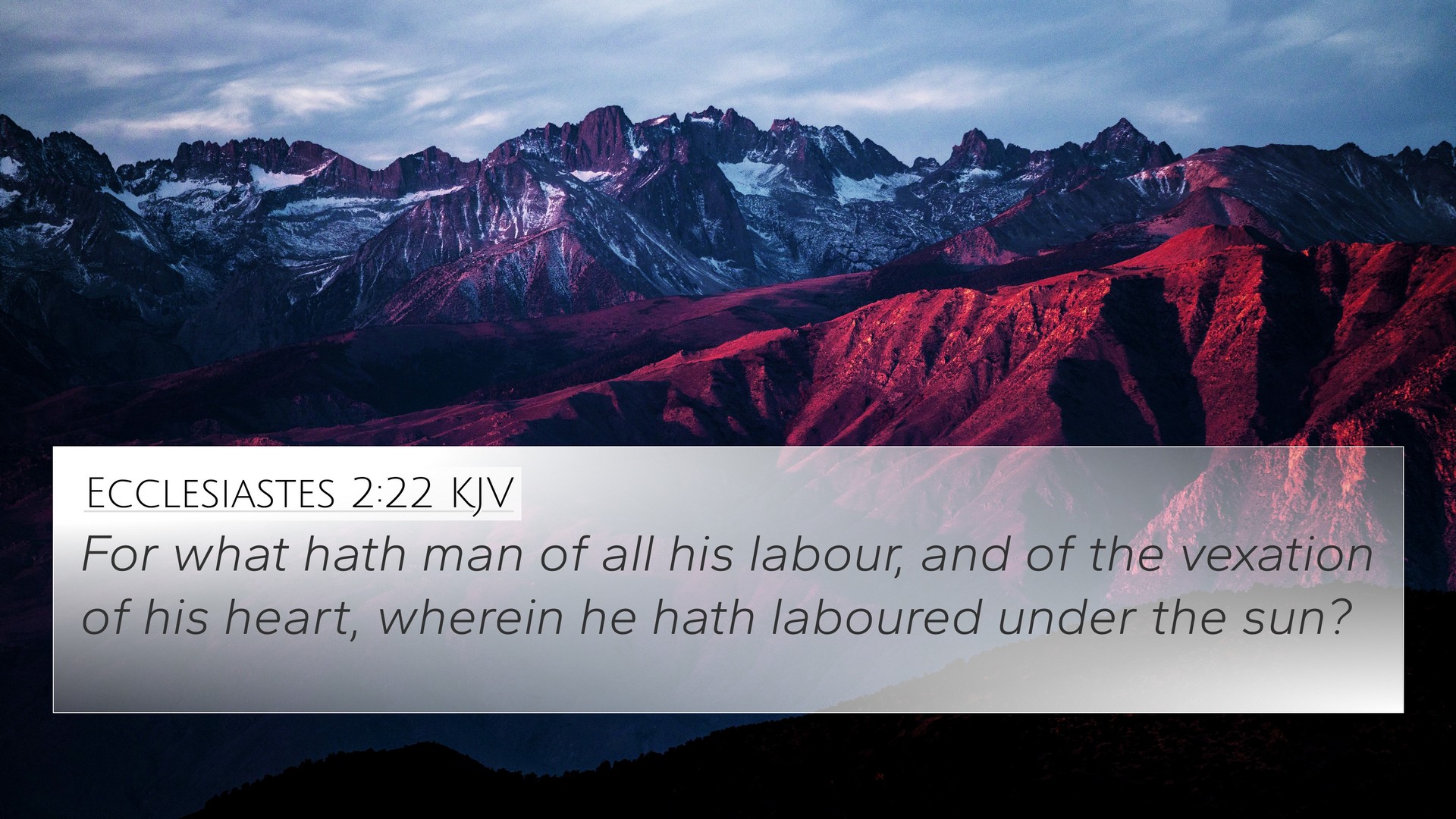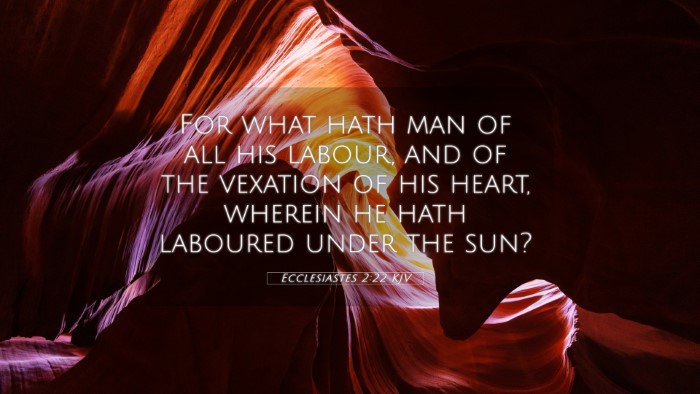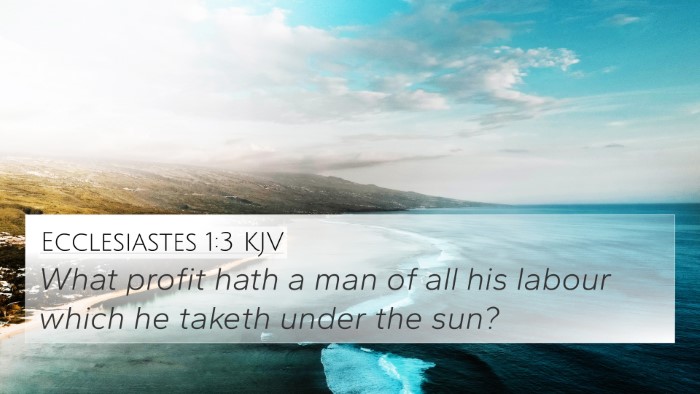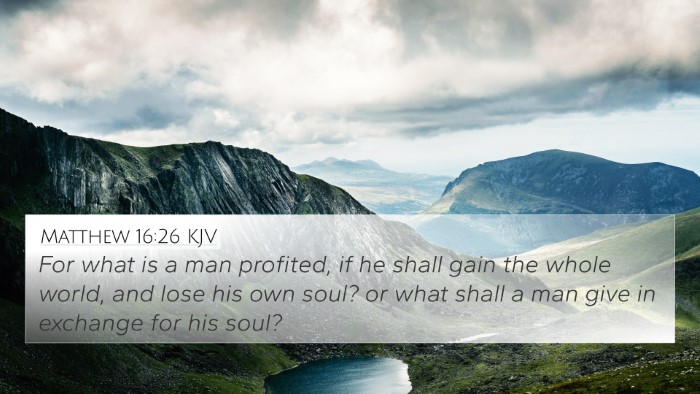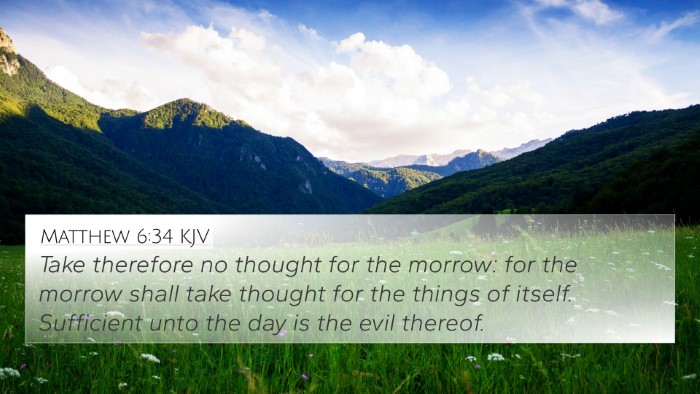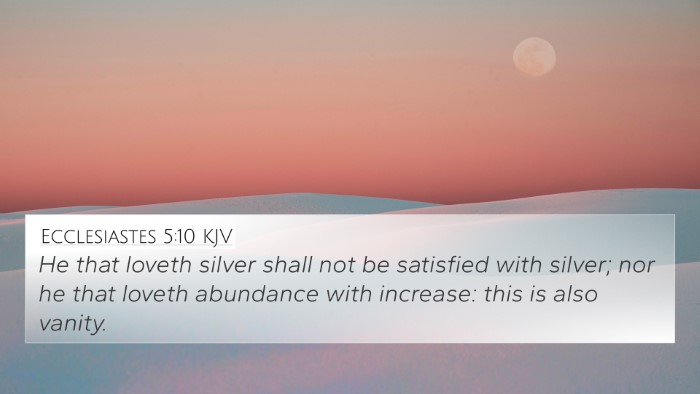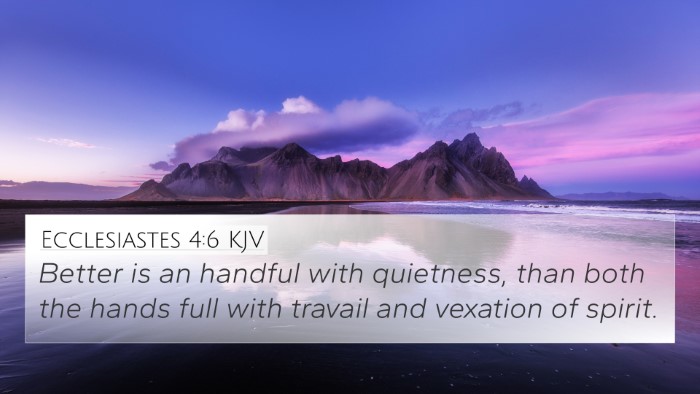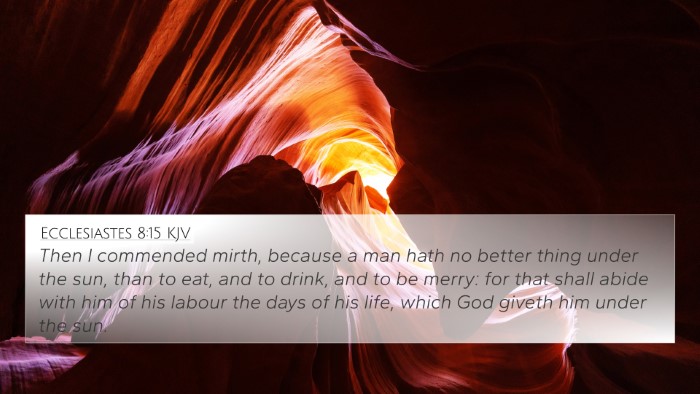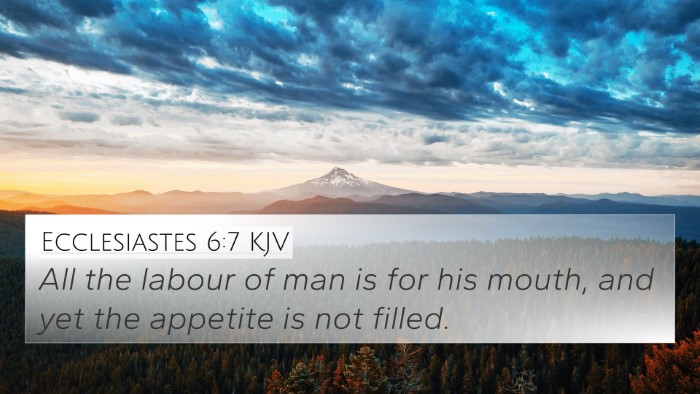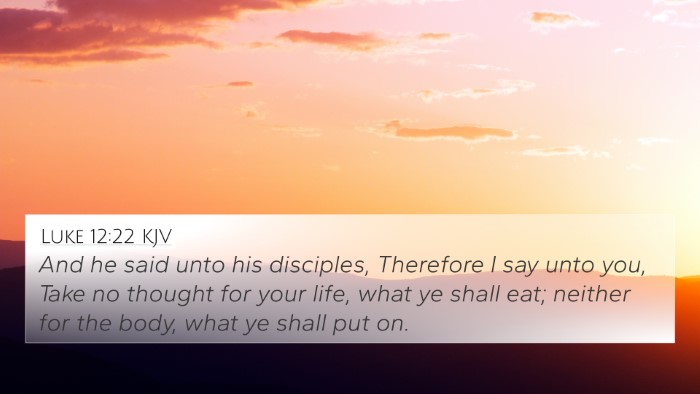Meaning of Ecclesiastes 2:22
Ecclesiastes 2:22 states: "For what hath a man of all his labour, and of the vexation of his heart, wherein he hath laboured under the sun?" This verse captures a profound existential question regarding the purpose and outcome of human toil. Below, we provide insights gathered from various public domain commentaries.
Summary of Ecclesiastes 2:22
This verse reflects on the futility and frustration of human effort. The preacher (traditionally understood to be King Solomon) ponders the value of his work, achieving wealth and knowledge, but ultimately feels that it leads nowhere. He questions the significance of labor when it may not lead to lasting joy or fulfillment.
Commentary Insights
Matthew Henry's Commentary
Matthew Henry emphasizes the vanity of human endeavors without the proper perspective of God’s will. He notes that labor, if pursued without spiritual purpose, results in frustration. Henry urges readers to reflect on the transient nature of earthly pursuits and the importance of a heavenly focus.
Albert Barnes' Notes
Albert Barnes outlines the burdens associated with hard work and the 'vexation of the heart' that often accompanies it. He indicates that life’s frustrations can overshadow any achievements, leading one to question the purpose of their toil. Barnes encourages finding joy in simple pleasures rather than in material accumulations.
Adam Clarke's Commentary
Adam Clarke notes that the phrase "under the sun" signifies an earthly perspective. He reflects on how this limits understanding and appreciation for the greater purpose behind labor. Clarke suggests that without a divine context, efforts may seem meaningless, leading to despair rather than fulfillment.
Related Bible Verses
Ecclesiastes 2:22 has connections with several other verses, highlighting the theme of the vanity of earthly pursuits and the search for meaning in life. Below are important cross-references:
- Ecclesiastes 1:3 - Similar questioning of the benefit of labor.
- Matthew 6:19-21 - Instructs against storing treasures on earth.
- 1 Corinthians 15:58 - Encouragement to labor in the Lord, for it is not in vain.
- James 4:14 - Life is fleeting and uncertain, reinforcing Ecclesiastes' themes.
- Psalm 127:1-2 - Emphasizes that without the Lord, efforts are in vain.
- Ecclesiastes 3:22 - Suggests finding joy in our work as a gift from God.
- Proverbs 14:23 - Hard work leads to profit, but mere talk tends to poverty.
- Mark 8:36 - Questions the worth of gaining the world and losing one's soul.
- Philippians 4:11-13 - Learning to be content in every situation contrasts worldly striving.
- Revelation 14:13 - Highlights the blessedness of labor for God in eternity.
Understanding Through Cross-Referencing
To grasp the full implications of Ecclesiastes 2:22, one can employ various tools for Bible cross-referencing. Identifying the connections between Bible verses allows for a deeper understanding of the consistent biblical message regarding work and existence.
By utilizing a Bible concordance or a cross-reference Bible study method, readers can explore how different verses address similar themes of labor, purpose, and fulfillment.
Importance of Cross-Referencing
Cross-referencing biblical texts not only enhances the understanding of specific passages like Ecclesiastes 2:22 but also illuminates the overarching narrative of Scripture. This interconnectedness speaks volumes about God's intent and human experience.
Conclusion
The exploration of Ecclesiastes 2:22 through the lens of public domain commentaries reveals profound existential truths that resonate across the Bible. As one searches for bible verse interpretations and bible verse explanations, it's essential to consider how different Scriptures inform and deepen our understanding of one another, encouraging a rich, thematic study of God’s Word.
